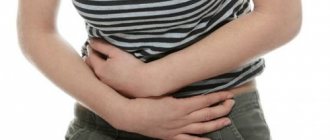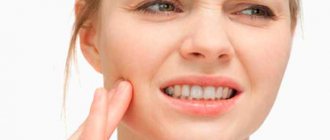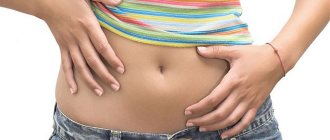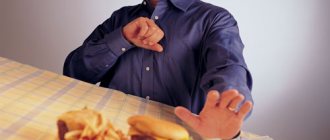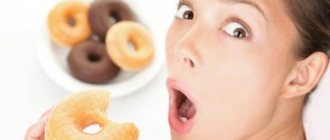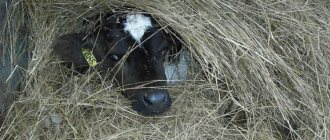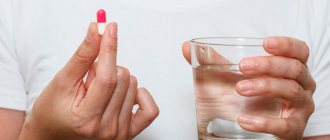Drowsiness after lunch is due to many reasons, ranging from banal overeating to the specifics of certain foods. We often experience a strong desire to take a nap during the day after being very tired, physically active, because of cloudy weather, or simply because we didn’t get enough rest at night.
Like 10
50564
The lethargy and drowsiness that we experience immediately after eating are often caused by precisely these reasons, but there are some nuances here. If a simple half-hour rest after a meal is not enough for you and your body insists on sleep, perhaps it’s not just a matter of your daily routine. In this article, we decided to analyze in detail all the possible causes of afternoon sleepiness that are not related to fatigue.
Why do you want to sleep so much after eating? Causes of sleepiness after lunch
It turns out that the desire to get some sleep after a hearty lunch is not just the body’s self-defense from external physical influences.
Along with physical activity, mental activity is also limited for the period after eating. Scientists have studied this fact in detail and come to certain conclusions that allow us to understand what exactly happens in the human body after eating, and why you want to sleep so much. It turned out that the desire to sleep is associated with an increase in blood glucose levels. When it increases, some brain cells stop sending signals of wakefulness, and those structures that synthesize orexin are especially strongly suppressed. Namely, this hormone is responsible for the transition from wakefulness to sleep and vice versa. Carbohydrates that enter the human body with food are also to blame. Their appearance is accompanied by the production of serotonin, a pleasure hormone that puts a person into a calm state. An excess of such calmness inevitably leads to the desire to get some sleep.
There is another opinion - a number of scientists point out certain shortcomings and weak points that exist in the body of every person. So, when the digestive system is activated, a large volume of blood flows to it. In this case, the brain is somewhat deprived, there is not enough blood for normal functioning, and some oxygen starvation occurs. And therefore a person is irresistibly drawn to sleep during the time that food is being digested.
Food can trigger the desire to sleep
There are a number of products that are called "sleepy". And for good reason. After all, they contain an amino acid that affects the sleep hormone - melatonin. Therefore, it is worth limiting or completely eliminating such foods from your lunch diet, or moving them to dinner. Bananas, walnuts and almonds contain potassium and magnesium, which affect muscle relaxation and force us to lie down for an hour or two after eating. Herbal teas also cause drowsiness. Chamomile and mint teas are best drunk before bed because they have a calming effect. Coffee or tea without sugar or just a glass of water will give you vivacity and energy at lunch.
Food that makes you not want to sleep. Is it possible to sleep after eating: harm to the body
Probably each of us knows the old humorous saying: after you eat, you can sleep. Indeed, after lunch you want to sleep, even if it was not very dense. Why is this happening?
Previously, it was generally believed that this was related to the temperature of the food: that after, for example, hot soup, you would want to sleep more than after eating a sandwich. They thought that the body became warm and comfortable, and it was in this state that it was most accustomed to going to sleep.
But this theory collapsed immediately after its inception, because those surveyed claimed that they felt sleepy no matter what they ate. But scientists have noticed that the degree of drowsiness is influenced by such factors as calorie content and the amount of food eaten.
Causes of drowsiness after eating
So, let's figure out why you want to sleep so much after eating. There are a number of factors that regulate our body's reactions to certain foods. Among them:
- Age;
- Floor;
- Times of Day;
- Amount of food eaten;
- Calorie content of foods;
- General condition of the body.
It turns out that food processing is an incredibly energy-intensive process, so the body has to devote all its strength to completing it. This is the main reason why you want to sleep after lunch. Consequently, he tries to put us to sleep in order to redirect energy to the action necessary at the moment.
That's why after eating you really want to sleep. So maybe we need to sleep after the meal, since that’s how we are designed? Let's figure it out.
Sleeping after eating: harm or benefit
The debate on this topic lasted for decades, and there was always someone who put forward a theory that was more incredible than the previous one.
But the days of baseless speculation are long gone, and now we have all the technology that helps scientists confirm or refute various hypotheses with almost 100% confidence.
After conducting clinical studies, they finally found out why you want to sleep after eating.
The University of Manchester took up this problem and finally answered the question: is an afternoon nap harmful or beneficial?
The answer is clear: sleeping, and even lying down immediately after eating food is strictly prohibited. There are several reasons for this:
- When we lie down, we slow down the digestion process and compress the internal organs (lying on our stomach or side);
- Glucose entering the blood after eating suppresses the hormone orexin, which is considered a hormone of tone and vigor. And we contribute to this with our passive behavior;
- Unspent calories are deposited, forming unnecessary deposits of fat;
- Constant sleep or the habit of lying down after eating leads to metabolic disorders and the development of cellulite.
So, if you have a question: is it possible to sleep after eating? - the answer is categorical: no.
World practice
Many countries have tested the practice of introducing afternoon naps for employees of large companies. Employers have noticed that employees experience a lack of energy, lose concentration and, thereby, reduce their productivity.
Options for extending breaks, redistributing the load, and other methods that would help return the employee to work were considered. But then someone remembered that napping during the day was beneficial and introduced an afternoon nap into the daily routine.
Unfortunately, the result did not live up to expectations, because most employees did not have enough allocated time to get quality rest. In addition, it took them a long time to come to their senses and get ready for work after waking up.
Everyone agreed that they were terribly sleepy at work after lunch, but most agreed that sleeping in the middle of the workday didn't make them feel more alert. Moreover, some workers began to complain of discomfort and heaviness in the stomach.
After examination, it turned out that by falling asleep or simply taking a horizontal position, we independently slow down the process of digesting food, stretching it out over a longer period. Without realizing it, people were prolonging the digestion cycle, forcing their gastrointestinal tract to work longer and harder than it should. This is why you should not sleep after eating.
What to do if you want to sleep after lunch?
We are accustomed to thinking that eating is a kind of recharge. So why do you feel sleepy after eating and feel weak? And most importantly, what to do about it?
- Don't let yourself lie down;
- If possible, take a walk;
- Distract yourself with an interesting, but non-monotonous activity;
- Change the type of activity;
- Physical activity speeds up the process of food processing and has a beneficial effect on the digestion process. Force yourself to get up and tidy up your workspace, call a friend, or just chat with colleagues.
Solution
No matter how difficult it is for a person to control himself and resist treats, he can try to move in a better direction. First, take serious action and try to eliminate sources of stress, no matter how difficult it is.
You need to play sports or at least start walking every day so that you can “ventilate” your thoughts and think about something other than food. And also sleep at least 7-8 hours every day so that the body has the opportunity to fully recover and raise the level of leptin (the hormone that is responsible for the feeling of fullness).
Instead of fighting with your body, it is better to stick to a reasonable and balanced menu every day. Thus, it is possible to reduce attacks of brutal appetite and stop the endless alternation of periods of diets or hunger strikes, followed by systematic overeating and, as a result, weight gain.
Is it possible to sleep after eating? APP - Article Actions
Everyone has a hundred habits that are ingrained in our brain. But, unfortunately, many of them can cause us to feel unwell. It turns out that a person’s health is affected not only by what he eats, but also by what he does after eating. Our digestive system is very sensitive and needs to be taken seriously, says takprosto.cc
What not to do immediately after eating
NO: Walking
Many of us believe that after a heavy meal it is good to go for a walk, but this is not entirely true. Walking after eating can cause acid reflux and indigestion. Walking is a great way to burn off calories. But doctors recommend doing it no earlier than 15–20 minutes after eating.
2.NO: Fruit
There is an opinion that fruits should be eaten as dessert immediately after meals. But actually it is not.
Fruits eaten after the main meal come into contact with it and begin to ferment and sour. This disrupts the normal digestive process. It is better to eat them an hour before meals or at least 2 hours after.
3.NO: Tea
Doctors do not advise drinking tea after meals, as it contains acids that bind iron, preventing it from being absorbed. When we wash down our food with this drink, we do not get the required amount of iron from our meals.
This is why the ideal time to drink tea is at least an hour after eating.
4.NO: Sleep
Most of us like to go to bed immediately after eating, but this habit is harmful. When lying down, a small amount of digestive juices flow back from the stomach into the esophagus. This is why some people experience heartburn when they go to bed immediately after eating. To avoid this problem, go to bed at least two hours after eating.
5.NO: Taking a bath
Bathing in warm water increases blood flow to the extremities and to the entire surface of the body. Accordingly, blood flow in the stomach area decreases. Do water procedures at least half an hour to an hour after eating.
6.NO: Smoking
Smoking after meals causes symptoms of irritable bowel syndrome. It also negatively affects the muscles of the colon, which is responsible for the final stage of the digestion process. For some, smoking is a passionate habit, for others it is a way of demonstrating sociability. But both of them often light a cigarette after eating alone or with colleagues and friends.
Although smoking is associated with more serious risks, including cancer and emphysema (which causes shortness of breath), in this case it is associated with worsening the symptoms of irritable bowel syndrome (IBS), which causes stomach ulcers.
What to do immediately after eating
YES: Warm water
To properly digest food in the first hour after eating, the body needs energy and warmth. Therefore, it is advisable not to eat cold foods, such as ice cream, immediately after the main meal. It is best to drink a couple of sips of warm water.
2.YES: Conversation with loved ones
For proper blood flow and digestion, avoid physical and mental strenuous activities. It is best to spend time after eating for pleasant communication with loved ones without any arguments or quarrels.
3.YES: Loose clothing and belt
To prevent gastroesophageal reflux disease, avoid wearing tight clothing or tight belts that put pressure on your stomach. We hope that you will take these recommendations into account and take care of your digestive system.
Noticed a mistake? Select the text and press Ctrl + Enter!
How to prevent
- Try to get enough sleep. Move morning activities to another time. Adults are advised to sleep up to 9 hours, teenagers a little more;
- Remove unnecessary items from the bed. The quality of sleep is negatively affected by the use of a laptop, game console, or smartphone;
- Arrange to wake up at the same time. Going to bed and getting up at set hours is not only necessary on weekdays;
- Gradually change your sleep schedule. If you get ready for bed 15 - 20 minutes earlier, the effect will be higher than going to bed immediately 1 - 2 hours before;
- Exercise. Aerobic exercise keeps the brain in sufficient tension and helps you fall asleep faster;
- Change your daily routine. Move some classes from night to evening;
- Stick to a bland diet. Do not starve, avoid gluttony and long breaks;
- Don't go to bed early. It is useful to learn to distinguish drowsiness from fatigue. A sure sign is that your eyes close and you immediately want to sleep on the move;
- You can't sleep in the evening. Short sleep will interfere with nighttime sleep, and daytime fatigue will manifest itself more strongly;
- Don't drink alcohol. Alcohol prevents you from entering the phase of sound sleep; the habit of drinking a glass or two leads to insomnia;
- Eat sweets in small quantities. A balanced level of carbohydrates will be beneficial;
- Take vitamin C. It improves not only immunity, but also condition.
- Drink more water. Drink up to two liters of liquid per day.
Drowsiness after eating liver. Drowsiness and weakness after eating - reasons
When eating, the human body is saturated with nutrients that are sources of energy. But often, instead of vigor, drowsiness and weakness occur after eating.
Sometimes it can be very difficult to fight sleep; it can interfere with work or some daily activities. To overcome this condition, you need to understand why weakness and the desire to sleep occur.
Why do you feel drowsy and weak after eating?
The fact that sometimes after a hearty dinner you want to sleep is a completely natural state. There are several factors that provoke afternoon weakness and sleep:
- Energy consumption. Having spent considerable energy on digesting food, the body relaxes. As a result, you feel tired and sleepy. Lack of blood flow to the brain. In any process occurring in the body, blood supply plays a key role. When food is absorbed and digested, the main blood flow enters the digestive system. As a result, the brain does not receive a certain amount of blood and its activity decreases. A person feels relaxed and wants to lie down. Carbohydrate-rich food. Sugar is a source of energy for brain cells. When a person is hungry, there is intense production of orexin, a substance responsible for weight gain and appetite, as well as regulating sleep. After saturating the body with food high in carbohydrates, the level of glucose in the blood increases. As a result, the production of orexin stops, which leads to loss of strength and decreased ability to work. Overeating. The cause of drowsiness can be absolutely banal - oversaturation with nutrients. When an excessive amount of calories enters the body, the stomach does not have time to digest food, weakness appears, sometimes even nausea and stomach pain. Impaired water balance. Due to a lack of fluid in food, the blood thickens, blood pressure decreases, and the pulse weakens. The person becomes lethargic, feels tired and drowsy. Violation of the night rest regime. A person who has not had enough sleep may feel sleepy throughout the day. Eating increases the feeling of fatigue and the desire to sleep.
The state of the body after eating is also affected by a person’s physical activity. Those who move little and rarely spend time outdoors are more likely to feel drowsy than their peers who lead an active lifestyle.
In addition, the influence of individual products affects the body differently. There are foods rich in tryptophan. This substance is necessary for the production of serotonin and melanin - hormones responsible for the quality of sleep. Therefore, consuming foods with tryptophan may cause drowsiness. Such products include bananas, all types of nuts, dairy products, and pumpkin.
All these signs are quite harmless if the body is generally healthy. But, there are cases that the cause of afternoon lethargy and languor is much more serious, and is caused by certain malfunctions in the body.
Diseases that cause drowsiness and weakness after eating
If the feeling of relaxation and lethargy after eating food lasts for quite a long time, then this may be caused by pathological processes occurring in the body.
The cause of this condition may be chronic diseases:
- diabetes mellitus - glucose surges after meals can cause weakness; disruption of the thyroid gland - a lack or excess of the hormone causes drowsiness;
- diseases of the stomach and intestines cause discomfort after eating;
- Complications after surgery lead to deterioration in well-being after eating, weakness, and dizziness.
- hyperglycemia - can develop due to a long break in food intake. In this case, after eating, due to a sharp increase in blood sugar, general health worsens, weakness and nausea appear.
Similar symptoms can be observed with weakened immunity and lack of vitamins. Long-term use of medications can also cause fatigue and lethargy after eating.
How to get rid of afternoon sleepiness
Regular attacks of lethargy and languor that appear after eating should alert you and prompt you to see a doctor for examination. In the absence of a serious illness, you can avoid the continuous craving for sleep. For this you will need:
- balance your diet;
- reduce consumption of heavy foods;
- eat food in small portions;
- improve night rest;
- limit intake of sweets and alcohol.
If you cannot prevent the desire to sleep, then you can take a nap for 15-20 minutes, giving your brain a rest and relieving fatigue.
If this is not possible, you can do several breathing exercises to ensure the flow of oxygen to the brain. To do this, when you go out into the fresh air, you need to inhale quickly and deeply 20-30 times.
A short nap, a walk in the fresh air, or simple breathing exercises will help with quick recovery and performance after eating.
Recommendations from somnologists
Sleep specialists advise following these rules to reduce the desire to sleep during the day:
- First of all, you need to get enough sleep. Without this, any food will make you sleepy.
- Sleep should be ordered, as should your diet.
- Alcohol is harmful and causes excessive sleepiness.
- Regarding problems with sugar, the lunch meal should contain sugars and carbohydrates in moderation. Exceeding the norm is harmful and will lead to hypoglycemia and drowsiness due to a decrease in blood sugar levels.
- Overeating also leads to sugar crashes. If you need to raise your glucose levels and not fall asleep during the day, the best solution is simple sugars. The optimal monosaccharide to help with afternoon sleep is just a spoonful of granulated sugar.
Afternoon naps are important and needed when they are beneficial. If you overeat and do not follow a diet, the benefits can be turned into harm.


